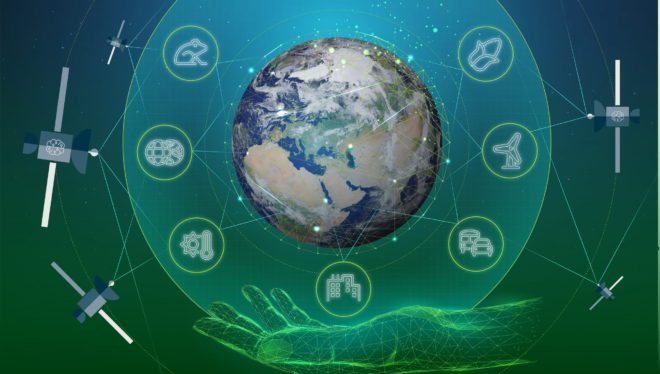Rocket launches are nothing short of spectacular. Whether we grew up in the Apollo era, the space shuttle era or the private space era, most of us can easily bring to mind a rocket launch with the roar of its engines, jets of fire and trails of smoke. That image is burned into the consciousness of nearly everyone on planet Earth with access to TV or internet.
But, until recently, few people considered that those spectacular launches might be leaving an awful lot of pollution in its wake. As it turns out, the space travel industry, with its several dozen launches per year, is responsible for the same amount of carbon emissions as the global aviation industry. With the commercial space industry maturing at a rapid pace, we are seeing a steady increase in the number of rocket launches every year. So, the scale of the problem is only going to grow.
The space travel industry is responsible for the same amount of carbon emissions as the global aviation industry.
In May 2022, two scientists from the University of Nicosia in Cyprus, Ioannis Kokkinakis and Dimitris Drikakis, sought to quantify the potential impact in a study that appeared in the Physics of Fluids journal. They sought to measure the potential health and climate risks by blending rocket launch data with computer simulations.
The conclusion they reached was that “pollution from rockets should not be underestimated as frequent future rocket launches could have a significant cumulative effect on climate,” and may also become “hazardous to human health.”
In the simulations, the scientists used data based on the standard rocket fuel RP-1. And therein lies one of the biggest problems that the space launch industry needs to tackle. RP-1 (alternatively, Rocket Propellant-1 or Refined Petroleum-1) is a highly refined form of kerosene that has been the standard rocket fuel used for decades. Unfortunately, RP-1 is not and never has been a clean-burning fuel. A launch using RP-1 or similar kerosene-based fuel creates many tons of CO2, as well as particulates in the atmosphere called black carbon, commonly known as soot.
However, it is not all doom and gloom. It is early days, admittedly, but it is safe to say there is a green revolution starting in the space launch industry. Positive signs are starting to appear across the global space industry and it appears to be gathering steam.
It is starting with a rethink about the fuels that are being utilized. Three emerging rocket launch companies, two in Europe and one in the U.S., have decided to build their rockets around a very different, yet very familiar fuel — propane. Strange as it may seem, what most people think of as camping gas might be a saving grace for the global space launch industry.
Propane has qualities that make it a very sustainable fuel. First, it is very clean-burning, meaning that black carbon is not left in the atmosphere. Second, its carbon footprint is minimal compared to RP-1. A study from the University of Exeter concluded that a “microlauncher” rocket using the renewable form of propane — bio-propane — could reduce CO2 emissions by up to 96% compared to other similarly sized rockets.
One spaceport currently being built in Scotland, Sutherland Spaceport, is also taking a stand on environmental sustainability. The developers of that spaceport aim to make it the first carbon-neutral spaceport globally — both in its construction and its operation. One illustration of what that means practically is how the developers plan to reuse the peat lifted from the construction to repair the peat “scars” in the landscape nearby, created by decades of harvesting peat for fuel.
Another hopeful sign from the space industry comes from the European Space Agency (ESA). They recently commissioned a study called “Ultra-Green Launch & Space Transportation Systems.” Although this is a long-term play, as it is looking for solutions to be exploited in the period 2030–2050, the fact that a major space agency is studying the issue is a positive sign of the direction that the global space industry in taking.
There is positive momentum, too, from the European Space Agency, through their leadership in tackling the issue of space debris or space junk. Anyone who has seen the movie Wall-E can picture what that might look like from space and feel a little collective shame at how humanity has reached this situation. It is thought that there are now millions of fragments of space junk in Earth’s orbit. However, one of the most comforting aspects of ESA’s leadership in this sphere is how they are actively putting resources into projects that will seek to actively remove debris, leaving our planet’s orbit cleaner and more accessible.
Five to ten years ago, you would have struggled to find anyone, anywhere connecting the words “sustainability” and “space.” That is changing, and rightly so. But this is not the time to sit back and think that everything will be fine. If the space industry is to flourish in the 21st-century, sustainability will need to become a core part of its ethos.
What may begin with polite applause from the periphery for sustainability initiatives will no doubt lead to financial disincentives and eventually legislation. Even if most people are excited and inspired by rocket launches, the space industry is unlikely to get a free pass for much longer.
https://techcrunch.com/2023/08/13/the-space-industry-is-starting-a-green-revolution/


